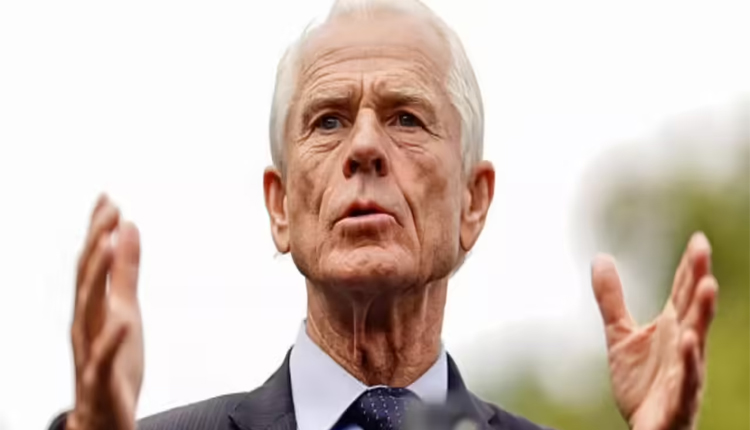Washington: A fiery remark by US President Donald Trump’s trade advisor, Peter Navarro, has set off a political storm in India, with his accusation that “Brahmins are profiteering at the expense of the Indian people” igniting a fierce debate over caste, culture and international diplomacy.
Made during a Fox News interview to justify Trump’s 50% tariffs on Indian goods, Navarro’s use of the term “Brahmin” has drawn sharp rebukes from Indian leaders, who call it a casteist slur, while others argue it references the American term “Boston Brahmin” for wealthy elites.
A Controversial Comment
Navarro’s remarks came as he criticised India’s purchase of discounted Russian oil, alleging it fuels Moscow’s war machine in Ukraine. “I would simply say to the Indian people, please understand what’s going on here. You’ve got Brahmins profiteering at the expense of the Indian people. We need that to stop,” he said on Fox News Sunday. He also questioned why Prime Minister Narendra Modi, leader of the “world’s biggest democracy,” was aligning with Russia’s Vladimir Putin and China’s Xi Jinping, especially after their high-profile meetings at the SCO Summit in Tianjin.
The term “Brahmin,” deeply tied to India’s caste system, triggered immediate backlash. Many saw it as a deliberate jab at India’s social fabric, escalating tensions already strained by Trump’s tariffs, which include a 25% levy for India’s Russian oil imports.
Indian Leaders React
The comment drew sharp responses across India’s political spectrum. Shiv Sena (UBT) MP Priyanka Chaturvedi condemned it as “shameful and sinister,” arguing that invoking a specific caste identity, even if meant to imply privilege, was no accident. “The use of ‘Brahmin’ by a senior US official in India’s context cannot be out of the blue — it was deliberate. Spare me sermons on its American usage,” she posted on X, dismissing attempts to downplay the remark.
Trinamool Congress (TMC) MP Sagarika Ghose offered a different perspective, suggesting Navarro may have meant “Boston Brahmin,” a 19th-century American term coined by Oliver Wendell Holmes Sr. for New England’s wealthy Protestant elite. “The term ‘Brahmin’ is still used in the English-speaking world to denote social or economic elites. The illiteracy on X is astonishing,” Ghose posted, drawing criticism for seemingly defending Navarro. BJP MP Nishikant Dubey countered, noting that “Boston Brahmin” was inspired by India’s priestly caste, implying Navarro’s choice was loaded.
The “Boston Brahmin” Debate
The controversy hinges on interpretation. In the US, “Boston Brahmin” refers to families like the Cabots and Lowells, known for their wealth and influence. Some Indian leaders, like TMC’s Saket Gokhale, argued Navarro, hailing from Cambridge, Massachusetts, used “Brahmin” to mean elites, not caste. “It’s a classic case of ignorance — those attacking Navarro should read real books,” Gokhale posted. Yet, critics like Congress’s Pawan Khera called the remark “baseless,” accusing the US of meddling in India’s affairs.
The debate has spilled onto social media, with some users mocking Navarro’s “Orientalist” tone, even creating memes of Russian oil in Hindu rituals. Others, like national security expert Derek J Grossman, warned that “fomenting caste unrest in India should never be US foreign policy.”
Trade Tensions And Geopolitical Context
Navarro’s comment is the latest in a series of attacks on India’s trade policies. He previously dubbed New Delhi a “laundromat for the Kremlin,” alleging Indian refiners profit by buying cheap Russian oil and selling refined products globally. India has defended its energy purchases, emphasising they stabilise global oil prices — a stance once praised by Western nations. The SCO Summit, where Modi shared a symbolic car ride with Putin, has intensified US concerns about India’s ties with Russia and China.
As US-India relations strain under Trump’s tariffs, Navarro’s remark has added fuel to the fire. Is it a cultural misstep or a calculated move to pressure India? The answer remains unclear, but the uproar underscores the delicate balance of diplomacy in a polarised world.



Comments are closed.